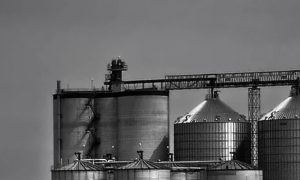Nigeria: Cassava prices will continue to rise as more firms compete to acquire it for ethanol production

The Nation reports a significant increase in cassava prices due to heightened competition for its use in ethanol production and industrial applications. Prices of cassava-derived products, like garri, have surged over 50%, with a cup now costing N800, up from N150. Prof. Kola Adebayo of FUNAAB noted robust demand from food processing and ethanol industries, leading to scarcity and price hikes for products such as flour and starch, prompting farmers to expand cultivation.
The escalating demand for cassava continues to drive up prices, particularly as numerous companies vie for the crop to use in ethanol production and various industrial applications. This competition is causing significant price increases in garri and other cassava-derived products, as companies are willing to pay higher prices to secure their supply of this crucial raw material, reported The Nation.
For example, the cost of cassava flakes, commonly known as garri, and rice has surged by more than 50 percent across most regions. Previously, a cup of garri sold for N150, now fetches N800, while a five-liter paint bucket is priced between N4,000 and N4,300.
The price surge is not confined to garri alone; it has also affected other cassava by-products such as flour, fufu, and starch, which have become scarce and expensive. This scarcity stems from the increasing value of cassava, which is now seen as a valuable commodity, leading to daily price hikes.
In an interview with The Nation, Prof. Kola Adebayo, Deputy Vice-Chancellor (Development) of the Federal University of Agriculture, Abeokuta (FUNAAB), highlighted that the cassava industry is experiencing robust demand from both domestic consumers and industrial sectors, particularly food processing and ethanol production.
He pointed out that besides native starch producers, cassava starch slurry is in high demand from food and beverage processors, paper manufacturers, and ethanol distillers. As demand continues to rise and prices escalate, Adebayo noted that farmers are expanding their cultivation areas to ensure profitability for industry operators.
















